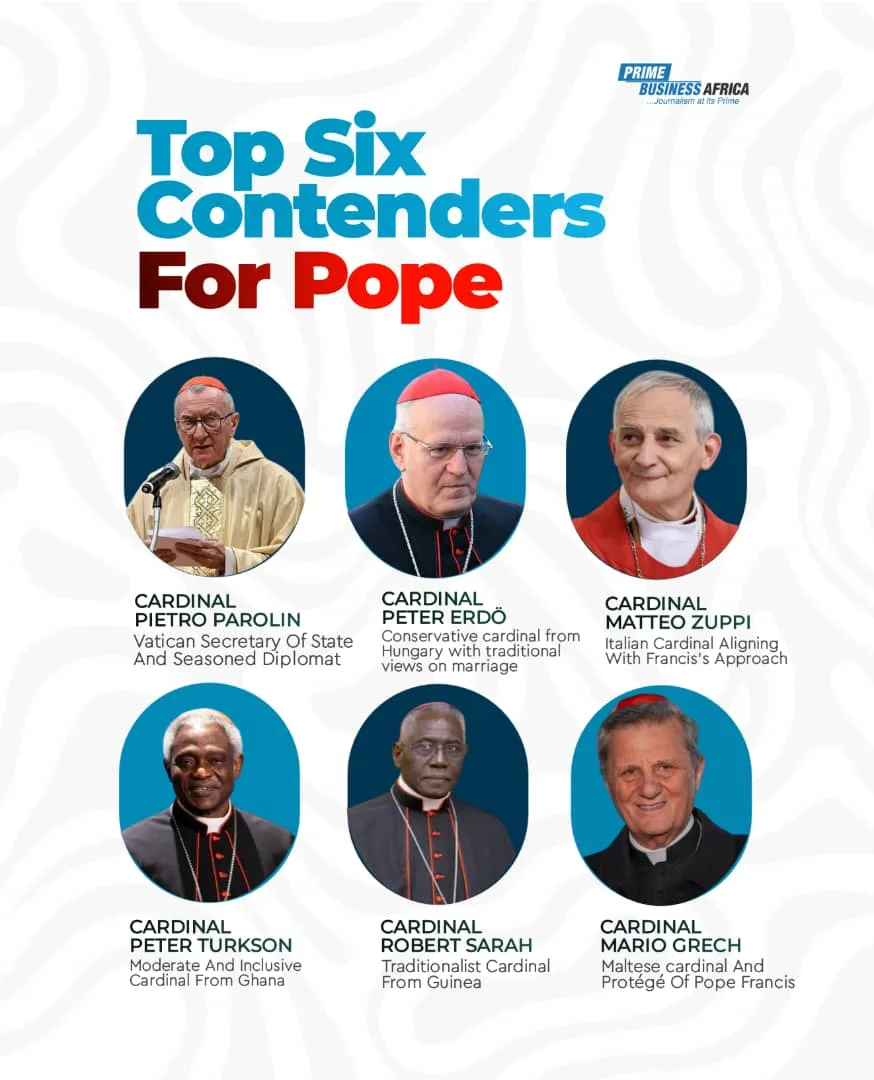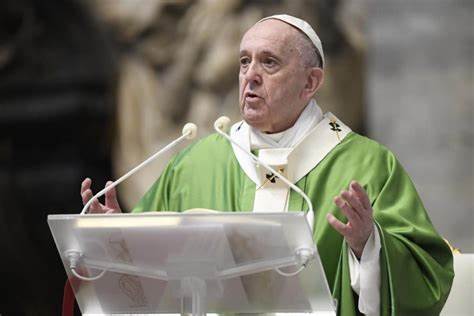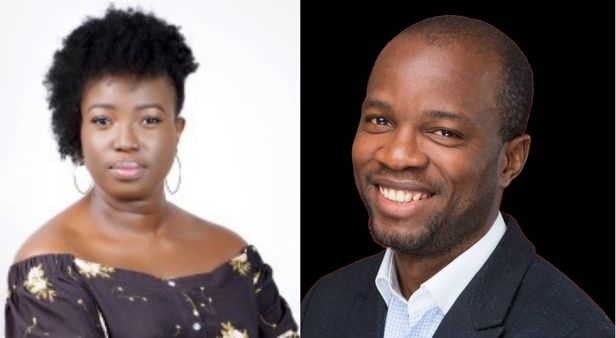The Catholic Church stands at a crossroads following the death of Pope Francis on 21 April 2025. As the College of Cardinals prepares to elect a new pope, the direction of the Church hangs in the balance. Key contenders have emerged, each with distinct views on pressing issues like LGBTQ+ rights and divorce.
What makes this succession particularly captivating is the intense speculation about whether the new pontiff will continue Francis’s relatively progressive stance, especially regarding LGBTQ+ rights, or revert to more traditional positions.
Join our WhatsApp ChannelAmong the leading candidates, often referred to as “papabili,” are several prominent cardinals from different regions of the world. Notable contenders include Cardinal Pietro Parolin, the Vatican Secretary of State and a seasoned diplomat, and Cardinal Luis Antonio from the Philippines, known for his pastoral sensitivity and progressive views.
Others are Cardinal Pierbattista Pizzaballa, the Latin Patriarch of Jerusalem, and Cardinal Peter Erdö from Hungary, who holds conservative views on marriage.
So also is Cardinal Matteo Zuppi of Italy, who aligns closely with Francis’s approach, as well as two prominent Black African cardinals: Cardinal Peter Turkson of Ghana, recognised for his moderate and inclusive approach, and Cardinal Robert Sarah of Guinea, known for his staunch defense of traditional Catholic doctrine. Amidst the aforementioned Cardinals, the big question remains:
Why are same-sex marriage and divorce the focal points in assessing potential popes?
Perhaps because these issues strike at the heart of Catholic teaching on the sanctity and indissolubility of marriage, which the Church regards as a sacred union between a man and a woman. The Church’s position on these matters shapes its moral authority and pastoral outreach.
Pope Francis’s more open approach to divorced and remarried Catholics and his nuanced comments on LGBTQ+ issues have stirred debate, making these topics litmus tests for the direction the Church will take under new leadership. The stance of a future pope on marriage and divorce is thus seen as a key indicator of whether the Church will maintain its traditional doctrines or embrace reforms that reflect contemporary social realities.
Another point to note is that every member of the Church, and indeed every person, comes from a family; the values, beliefs, and stability of families shape the mindset and direction of the wider community.
Pope Francis vs Pope Benedict’s Stance on Same Sex Union
During the era of Pope Benedict XVI, from 2005 to 2013, the Catholic Church also faced mounting pressure over its stance on LGBT rights and divorce, with calls for a more inclusive approach growing both within and outside the Church.
This period was marked by intense debate over whether the Church should soften its traditional opposition to same-sex unions and relax its teachings on divorce, reflecting broader societal shifts and internal tensions.
READ ALSO: Pope Francis Served The Church With Humility, Deep Love For The Poor – CBCN
Allegations circulated that Benedict resigned as a result of pressure to change the Church’s position on these divisive issues. Officially, Benedict consistently maintained that his resignation was due to declining health and the increasing demands of the papacy, citing “deteriorating strength due to old age” in his statement.
Pope Francis, on his part, adopted a notably softer tone on same-sex unions, signalling a subtle shift without altering Church doctrine. In the 2020 documentary Francesco, he expressed support for civil union laws, stating that homosexual people have the right to be part of a family and deserve legal protection. He remarked, “What we have to have is a civil union law, that way, they are legally covered.”
While reaffirming that marriage remains a sacred union between a man and a woman, Francis emphasised the need to uphold the dignity and rights of same-sex couples in society. His famous phrase, “Who am I to judge?” encapsulates his pastoral and inclusive approach.
Though these views have not changed official Church teaching, they represent a significant departure from the more rigid stances of previous pontiffs. Francis’s nuanced position has offered hope to many LGBTQ+ Catholics, while also provoking resistance among conservatives, which therefore highlights the ongoing tensions within the Church.
READ ALSO: Pope Francis’ Legacy: Five Groundbreaking Reforms That Transformed The Catholic Church
Beyond the debates over same-sex unions and divorce, a deeper question confronts the Church: why is so much attention given to these issues when far graver threats, such as violent attacks against Christians, continue to endanger Christianity worldwide? Nowhere is this more evident than in Nigeria, which remains the most dangerous country in the world for Christians, with at least 50,000 killed over the past two decades and hundreds of thousands more displaced by extremist violence. Despite this staggering loss, there is a sense that both the global Church and many Catholic bishops in Nigeria and beyond have not taken a firm, public stance on the inalienable right of Christians to life, nor have they consistently condemned the violence with the urgency it demands.
It raises yet other troubling questions: does the Church believe that such suffering is simply the will of God, or is there a reluctance to confront these realities head-on? Even if martyrdom is part of Christian witness, what about the daily struggles of food insecurity and the welfare of children, issues that threaten the very fabric of the Church as a family?
Can the Church Justify Homosexuality without Violating Its Doctrines and Biblical Teachings?
The Catholic Church’s opposition to homosexual acts is deeply rooted in its understanding of human sexuality, marriage, and procreation. While the Church calls for respect and compassion towards individuals with same-sex attraction, it teaches that sexual activity is reserved for marriage between a man and a woman, intrinsically ordered towards procreation.
This is consistent with its firm stance against artificial family planning, which it rejects because it deliberately frustrates the procreative purpose of sex within marriage. If the Church cannot condone contraception for deliberately closing off life, it logically cannot justify homosexual unions, which are by nature closed to procreation.
READ ALSO: Pope Francis: His Love For Football Resonates, Italian Serie A Postpones Games
Any attempt to do so would contradict both biblical standards and longstanding Church doctrine. Thus, the Church cannot justify homosexuality under any guise without doing violence to its existing teachings, which uphold marriage as a sacred, procreative union between a man and a woman.
The Catholic Church’s teachings against homosexuality are clearly outlined in both the Catechism of the Catholic Church and the Bible. The Catechism states that homosexual acts are “intrinsically disordered” and “contrary to natural law,” emphasising that “under no circumstances can they be approved” (Catechism of the Catholic Church, 2357). The Biblical passages in the Good News Translation further reinforce this stance. Leviticus 18:22 says, “You must not have sexual relations with a man as you would with a woman. That is detestable.” Leviticus 20:13 adds, “If a man has sexual relations with a man as he does with a woman, both of them have done something detestable.”
In the New Testament, Romans 1:26-27 describes same-sex relations as “against nature,” while 1 Corinthians 6:9-10 warns that “men who have sex with men” will not inherit the kingdom of God. Similarly, 1 Timothy 1:8-11 condemns such behaviour as contrary to sound teaching.
This is why Pope Francis’s more tolerant tone, including his support for civil unions, has caused confusion and anger among many Catholics who see it as a departure from these clear biblical and doctrinal teachings.
What the Church Ought to Understand
In as much as the Church clearly presents its teaching on loving the sinner and rejecting the sin, there remains a real risk that people will continue to embrace sinful behaviours simply because the sinners themselves are accepted.
If the Church’s response is to bless those living in ways contrary to its teachings, rather than to call them to repentance, it sends a confusing message. Instead of blessing those in same-sex relationships, why not pray for them to turn away from sin, just as Jesus told the woman caught in adultery, “Go, and do not sin again”? After all, two men do not need to be together to receive blessings from God. The true act of love is not to affirm someone in their sin, but to guide them towards repentance and holiness, helping them to break free from what separates them from God.
Another perplexing question is, if LGBT is accepted because those doing it are children of God, would the Church also approve parents marrying their children because they have rights? Until then, the next Pope and Church must deeply reflect on these things that might make some Christians not even believe in the Church’s teaching again.
Dr Mbamalu, a Jefferson Journalism ow, member of the Nigerian Guild of Editors and Media Consultant, is the publisher of Prime Business Africa.
Dr. Marcel Mbamalu is a communication scholar, journalist and entrepreneur. He holds a Ph.D in Mass Communication from the University of Nigeria, Nsukka and is the Chief Executive Officer Newstide Publications, the publishers of Prime Business Africa.
A seasoned journalist, he horned his journalism skills at The Guardian Newspaper, rising to the position of News Editor at the flagship of the Nigerian press. He has garnered multidisciplinary experience in marketing communication, public relations and media research, helping clients to deliver bespoke campaigns within Nigeria and across Africa.
He has built an expansive network in the media and has served as a media trainer for World Health Organisation (WHO) at various times in Northeast Nigeria. He has attended numerous media trainings, including the Bloomberg Financial Journalism Training and Reuters/AfDB training on Effective Coverage of Infrastructural Development of Africa.
A versatile media expert, he won the Jefferson Fellowship in 2023 as the sole Africa representative on the program. Dr Mbamalu was part of a global media team that covered the 2020 United State’s Presidential election. As Africa's sole representative in the 2023 Jefferson Fellowships, Dr Mbamalu was selected to tour the United States and Asia (Japan and Hong Kong) as part of a 12-man global team of journalists on a travel grant to report on inclusion, income gaps and migration issues between the US and Asia.


















